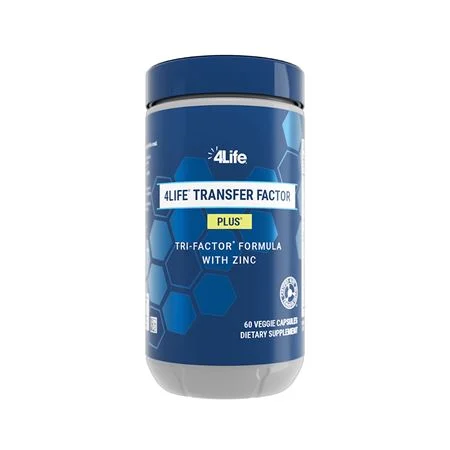Studies and Publications

Featured Study
4Life Transfer Factor is clinically proven to activate the immune system within two hours. Learn more.
4Life Transfer Factor Research
- Peer-reviewed publications Safety assessment of long-term use of 4Life Transfer Factor using a variety of studies recommended by regulatory authorities. Learn more.
- Beneficial impact of various compositions of transfer factors on the immune system.* Learn more.
- Positive effects of cow colostrum and egg-derived transfer factors Part 1: Non-specific immunomodulation.* Learn more.
- Positive effects of cow colostrum and egg-derived transfer factors Part 2: Antigen-specific immunomodulation.* Learn more.
- Development of an immunological method to evaluate the efficacy of 4Life Transfer Factor against health threats.* Learn more.
- Laboratory study reveals that Transfer Factor has the ability to calm down an overactive immune system. Learn more.
- The immunomodulatory properties of Transfer Factor on enriched natural killer cells. Learn more.
- 4Life Transfer Factor is clinically proven to activate the immune system in 2 hours. Learn more.
- Third-party studies Safety assessment of a single oral high-dose of 4Life Transfer Factor. Learn more.
- 4Life Transfer Factor is clinically proven to activate the immune system within two hours. Learn more.
- Measuring how much 4Life Transfer Factor® Chewable Tri-Factor® formula is safe for consumption.* Learn more.
- 4Life Transfer Factor suppresses an overactive immune response.* Learn more.
- In-house studies Pilot study to assess the effectiveness of a user-friendly instrument in quantifying IgA in human saliva. Learn more.
- Pilot study to obtain a normal range of salivary IgA by using a new, user-friendly instrument for humans. Learn more.
- How 4Life Transfer Factor can modulate the immune system and Helper T Cell activity. Learn more.
- Salivary IgA in healthy adults is increased by 4Life Transfer Factor. Learn more.
- Method development for the analysis of pbmc-mediated killing of k562 cells by bovine colostrum*. Learn more.
4Life Transfer Factor AgePro
- Peer-reviewed publicationsExamination of two natural product formulations that enhance lifespan and healthspan by targeting immune cell rejuvenation and cellular senescence. Learn more.TF AgePro significantly enhances the cytotoxic activity of natural killer (NK) cells across all age groups. Learn more.
- In-house studiesA clinical study found that 4Life Transfer Factor AgePro significantly enhanced Natural Killer (NK) cell activity and immune response across all age groups, specifically in the presence of harmful cells, without triggering spontaneous immune activation. Learn more
- Transfer Factor AgePro exceeds industry standards for NMN supplements in the marketplace. Learn more.
- This white paper explores the effects of 4Life Transfer Factor on natural killer immune cells of older individuals.* Learn more.
- This informal study compared health and longevity biomarkers and survey results from ten individuals before and after 12 weeks of taking 4Life Transfer Factor AgePro.* Learn more.
4Life Transfer Factor Cardio
- Third-party studiesLearn about a preclinical study where 4Life Transfer Factor Cardio was shown to protect the heart and boost the immune system. Learn more.
- Peer-Reviewed PublicationA preclinical study showing the protective effects of 4Life Transfer Factor® Cardio on cardiometabolic health.* Learn more.
4Life Transfer Factor ReCall
- Third-party studiesLaboratory studies show that 4Life Transfer Factor ReCall positively impacts aging brain cells.* Learn more.
4Life Transfer Factor SleepRite
- Peer-reviewed publicationsClinical study of TF SleepRite demonstrated significantly improved sleep quality, reducing difficulty falling asleep and nighttime awakenings. Learn more.
4LifeTransform Burn
- Peer-reviewed publicationsLaboratory studies showed that 4LifeTransform Burn by itself or with PRO-TF® stimulates fat metabolism and improves body composition.* Learn more.
- Clinical study of Transform Burn showed significantly reduced body fat percentage, improved satiety, and was well tolerated for weight management in healthy adults. Learn more.
- In-house studiesThermogenic properties of 4LifeTransform Burn in a 12-week weight management study.* Learn more.
4Life Transfer Factor Collagen
- Peer-reviewed publicationsA review article on natural ingredients that can benefit the skin.* Learn more.
- Efficacy of 4Life Transfer Factor Collagen on skin hydration, firmness, and wrinkles in an 84-day clinical study and telomerase activity in an in vitro study.* Learn more.
- Third-party studiesClinical study shows 4Life Transfer Factor Collagen improves skin hydration, firmness, and fine lines and wrinkles in healthy adults.* Learn more.
Digest4Life
- In-house studiesAn exploratory study on human gut microbiome modulation after a 25-day dietary cleansing and detoxification supplement regimen.* Learn more.
Gold Factor
- Peer-reviewed publicationsSafety assessment of long-term use of 4Life Gold Factor using a variety of studies recommended by regulatory authorities. Learn more.
- Clinical Study Demonstrating Gold Factor Effectively Improves Joint Health. Learn more.
- Third-party studiesClinical Study Demonstrating Gold Factor Effectively Improves Joint Health. Learn more.
- Gold Factor Shows Potential Anti-Aging Benefits* Learn more.
4Life Transfer Factor Lung
- Peer-reviewed publicationsEvaluation of the protective effects of 4Life Transfer Factor Lung against the negative impact of PM2.5 pollution exposure. * Learn more.
- Third-party studiesEvaluation of the protective effects of 4Life Transfer Factor Lung against the negative impact of PM2.5 pollution exposure.* Learn more.
Pre/o Biotics
- Peer-reviewed publicationsLaboratory study shows that four weeks of taking Pre/o Biotics has beneficial effects on gut integrity and microbiome health.* Learn more.
- In vitro studies examine different combinations of prebiotics and 4Life Transfer Factor on probiotic growth.* Learn more.
- Third-party studiesA collection of cellular and pre-clinical studies reveal the best combination of prebiotics, probiotics, and 4Life Transfer Factor for gut microbiome health.* Learn more.
- In-house studiesDiscovery and validation of prebiotic properties of ultra-filtered cow colostrum and chicken egg yolk*. Learn more.
4Life Transform PRO-TF
- Peer-reviewed publicationsLaboratory study that evaluated the effects of PRO-TF ingredients on markers of muscle growth, appetite, and fat metabolism.* Learn more.
- Laboratory study comparing amino acid absorption from hydrolyzed versus concentrated whey protein.* Learn more.
4Life Transform Renuvo
- Peer-reviewed publicationsEffects of Renuvo on the expression of oxidative stress markers while eating a high-fat, high-sugar diet.* Learn more.
RiteStart
- Peer-reviewed publicationsClinical study shows RiteStart improves several markers of general and immune health. Learn more.
- In-house studiesPositive influence of RiteStart as a foundational component in a 12-week personalized nutrition program.* Learn more.
äKwä
- Peer-reviewed publicationsA clinical study exploring the skin health benefits of the aKwa Skincare System.* Learn more.
- In-house studiesA clinical study exploring the skin health benefits of the aKwa Skincare System. Learn more
enummi Toothpaste With 4Life Transfer Factor™ and Postbiotic
- In-house studiesExploratory study shows oral health benefits of new and improved Enummi Toothpaste. Learn more.

